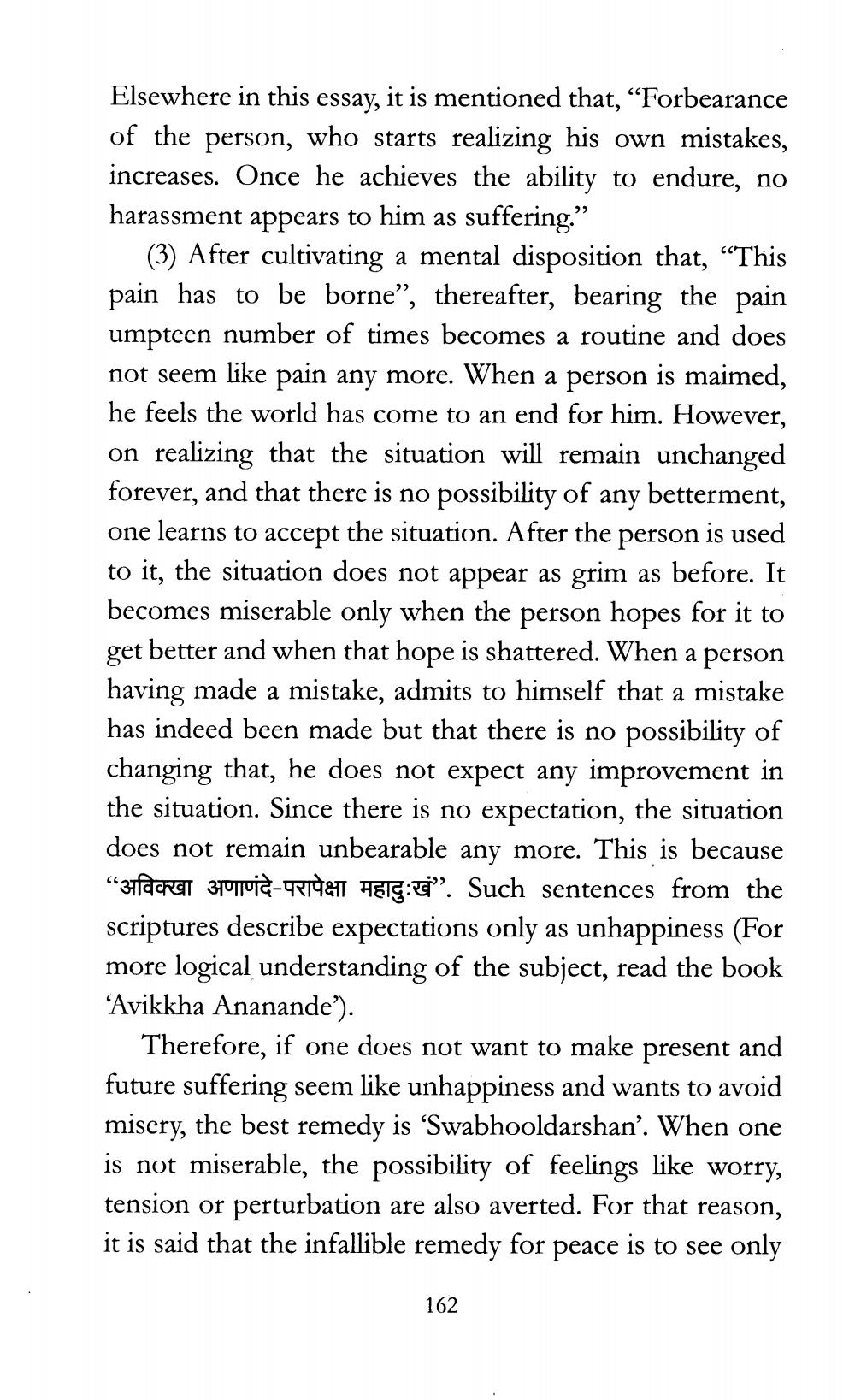________________
Elsewhere in this essay, it is mentioned that, "Forbearance of the person, who starts realizing his own mistakes, increases. Once he achieves the ability to endure, no harassment appears to him as suffering."
(3) After cultivating a mental disposition that, "This pain has to be borne", thereafter, bearing the pain umpteen number of times becomes a routine and does not seem like pain any more. When a person is maimed, he feels the world has come to an end for him. However, on realizing that the situation will remain unchanged forever, and that there is no possibility of any betterment, one learns to accept the situation. After the person is used to it, the situation does not appear as grim as before. It becomes miserable only when the person hopes for it to get better and when that hope is shattered. When a person having made a mistake, admits to himself that a mistake has indeed been made but that there is no possibility of changing that, he does not expect any improvement in the situation. Since there is no expectation, the situation does not remain unbearable any more. This is because “अविक्खा अणाणंदे-परापेक्षा महादुःखं”. Such sentences from the scriptures describe expectations only as unhappiness (For more logical understanding of the subject, read the book 'Avikkha Ananande').
Therefore, if one does not want to make present and future suffering seem like unhappiness and wants to avoid misery, the best remedy is 'Swabhooldarshan'. When one is not miserable, the possibility of feelings like worry, tension or perturbation are also averted. For that reason, it is said that the infallible remedy for peace is to see only
162




